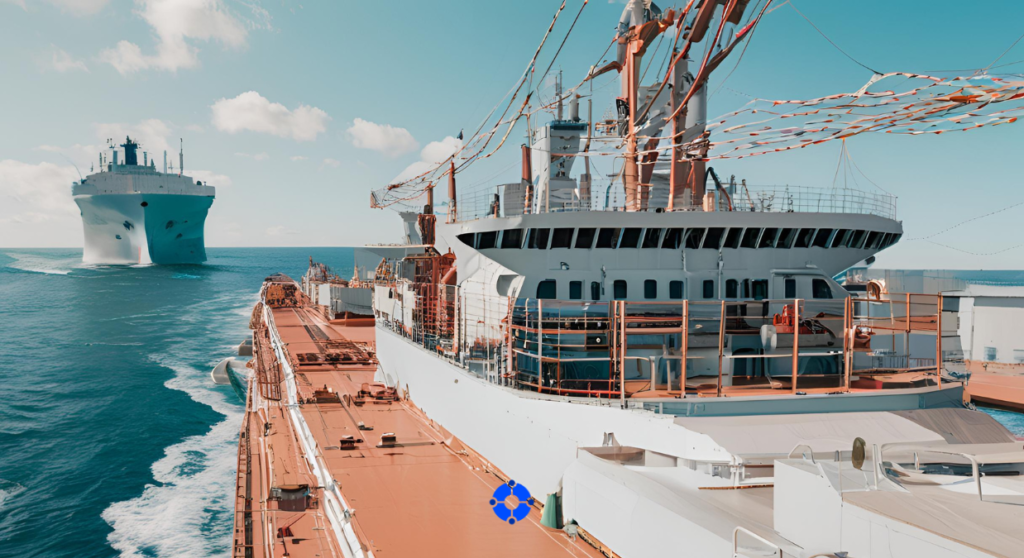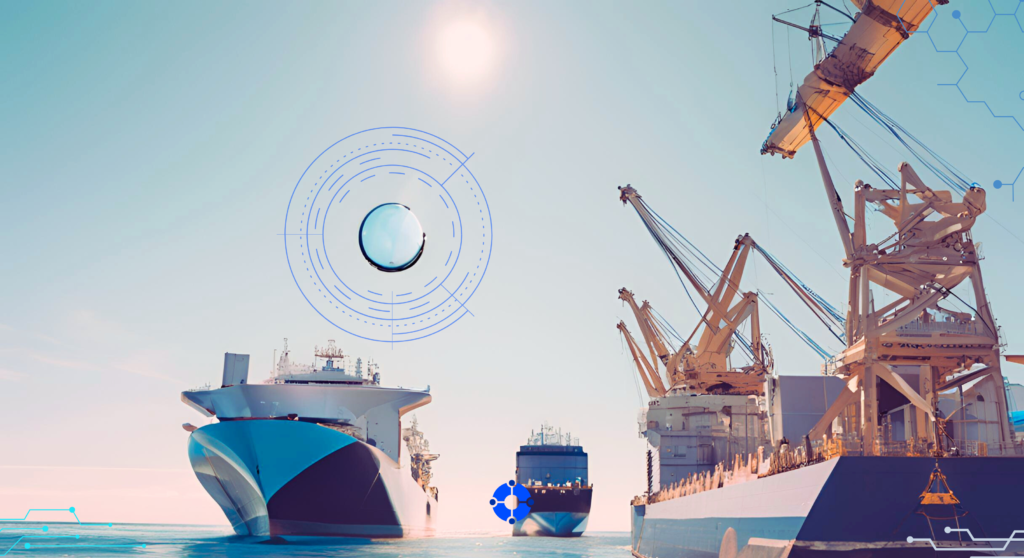
5 Key Maritime Tech Trends to Watch Out for in 2025
The maritime industry, often regarded as the lifeblood of global trade, is experiencing a rapid
transformation driven by technology. With challenges ranging from decarbonization to
increasing operational efficiency, maritime companies are embracing innovation to stay
competitive, relevant and compliant with global regulations for sustainability and
digitalization. As we step into 2025, several key tech trends are poised to shape the future of
this vital sector. Here’s a deep dive into the five most impactful maritime technology trends to
watch out for in 2025.
1. Green Shipping and Advancements in Decarbonization Technologies
 Key Innovations Driving Green Shipping?
Key Innovations Driving Green Shipping?
a. Alternative Fuels
Ammonia, methanol, hydrogen, and biofuels are gaining traction as viable
alternatives to traditional heavy fuel oil. These fuels offer significant reductions in CO₂
emissions.
b. Wind-Assisted Propulsion:
Technologies like rotor sails and wind kites are making a comeback, providing vessels with additional propulsion and improving fuel efficiency.
c. Carbon Capture Systems:
Onboard carbon capture and storage (CCS) systems are being piloted to capture emissions before they are released into the atmosphere.
The impact of this is that shipping companies that adopt these technologies can reduce operating costs and align with international sustainability standards, creating opportunities for greener supply chains.
2. Digitization of Ship Chartering: Streamlining Freight Negotiations
The traditionally complex and time-intensive process of ship chartering is being
revolutionized by digital platforms. These platforms aim to connect shipowners, charterers,
and brokers more efficiently, transforming the way cargo space is booked and managed.
⚓ Key Innovations
a. AI-Powered Cargo-Vessel Matching
Artificial intelligence algorithms match cargo with the most suitable vessels, optimizing efficiency and reducing downtime.
b. Real-Time Freight Rate Transparency:
Advanced tools provide up-to-date market insights, enabling stakeholders to negotiate better terms and avoid hidden costs.
c. End-to-End Charter Management:
Platforms integrate all steps—from inquiry to booking, contract management, and even post-voyage analytics—into a single interface.
d. E-Charter Parties:
Digital contracts and documentation streamline the process, reduce paperwork, and minimize disputes.
✯ Impact
By digitizing ship chartering, companies can cut down on administrative overhead, improve decision-making through data-driven insights, and expedite cargo movement. This trend is particularly valuable for smaller operators, leveling the playing field in a traditionally opaque market.
3. Autonomous Shipping: Towards Unmanned Vessels
Autonomous shipping has moved from science fiction to a tangible reality. Companies are investing heavily in the development of smart ships that rely on artificial intelligence, IoT, and advanced sensors to operate without human intervention.
⚓ Key Developments
a. Unmanned Surface Vessels (USVs):
Companies like Kongsberg and Rolls-Royce are leading the way in autonomous ship designs.
b. Remote Operations Centers:
These centers allow fleets to be managed from shore, minimizing human error and increasing safety.
c. AI-Powered Navigation:
AI systems optimize routes, avoid collisions, and ensure regulatory compliance in real-time.
✯ Impact
By digitizing ship chartering, companies can cut down on administrative overhead, improve decision-making through data-driven insights, and expedite cargo movement. This trend is particularly valuable for smaller operators, leveling the playing field in a traditionally opaque market.
4. Smart Ports and Blockchain Integration
Ports are becoming hubs of technological innovation as they adapt to increasing global trade volumes. Smart port initiatives leverage IoT, AI, and blockchain to streamline operations and improve efficiency.
⚓ Notable Achievements
a. -IoT-Enabled Sensors:
These sensors monitor cargo conditions, vessel arrivals, and port traffic in real-time.
b. Blockchain for Supply Chain Transparency:
Blockchain technology enhances security and transparency in maritime logistics, preventing fraud and streamlining document verification.
c. Automated Cranes and Vehicles:
Robotics and AI are automating cargo handling, reducing human error and turnaround times.
✯ Impact
By digitizing ship chartering, companies can cut down on administrative overhead, improve decision-making through data-driven insights, and expedite cargo movement. This trend is particularly valuable for smaller operators, leveling the playing field in a traditionally opaque market.
5. Cybersecurity Aimed at Strengthening Maritime IT Systems
As the maritime industry becomes increasingly digitized, it also becomes more vulnerable to cyberattacks. From ransomware targeting port operations to GPS spoofing affecting navigation, cybersecurity has become a critical concern.
⚓ Emerging Cybersecurity Measures
a. AI-Driven Threat Detection:
Machine learning algorithms can identify and neutralize cyber threats in real-time.
b. End-to-End Encryption:
Securing communications between vessels, ports, and other stakeholders is paramount.
c. Maritime-Specific Cyber Protocols:
New guidelines, such as the IMO’s Maritime Cyber Risk Management, provide a framework for tackling cyber risks.
✯ Impact
Companies that prioritize cybersecurity will not only protect their assets but also ensure the trust of their customers and partners in an interconnected global supply chain.

✯ Wrapping Up
The maritime industry is undergoing a technological renaissance, driven by the need to address environmental challenges, improve efficiency, and ensure safety. From green shipping innovations to autonomous vessels and enhanced cybersecurity measures, 2025 will see significant advancements shaping the future of maritime operations.
Stakeholders must not only adopt these technologies but also foster collaboration, invest in workforce training, and align with global regulations. The seas are changing, and those who navigate these tech trends wisely will lead the industry into a sustainable and efficient future.
Want to go digital? Contact Us now to get started.


